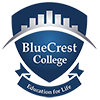Dr Vivekananth Padmanabhan|HOD-IT|Senior Lecturer IT&&Business|Certified Career Analyst
Imagine David, a student opting for an engineering degree due to peer pressure. He completes the degree after so much struggle, manages to get a job, works for a year, and comes to the realization that this job is not his passion; he is hating it, and he wasted 5 years on a career that he does not like.
Let’s take a scenario: Mary is a calm and studious student from her school days and always gets the first rank at school. She listens to her parents for everything and does not take decisions on her own. Her parents wanted her to be a doctor, so she agrees and works hard for it, gets admission to the elite university, and joins the course.
The story gets tragic after this: after joining the course, Mary realizes medicine does not suit her; she does not want to disappoint her parents; she tries to work harder; even after trying so hard, she could not cope; she gets depressed and attempts suicide; luckily, she is saved; but she was in trauma and discontinues the course.
There is a common thread in both cases. The common aspect is that both students did not select a career based on a systematic approach; when they realized their mistake, it was too late.
Let’s take another scenario: John, the average student at school, passes subjects with great difficulty, but his parents are educated and aware of the latest trends, so they decide to do career analysis. They found out he has a “realistic” mind, an “investigative” nature, and an “enterprising” personality, so they encourage him to be a computer engineer and help him join a short-term course.
John joins a small company in the beginning, works there for a few years, and becomes an “intrapreneur” by becoming the branch manager. Based on the skills he gathered in a few years, he decides to be a “technopreneur (start his own company based on his technical and managerial skills). He becomes so successful in his venture that he becomes a millionaire in a few years.
How does an average student at school sometimes succeed in a career and become a millionaire, whereas a high-performing student sometimes fails miserably?
What is the difference that makes the difference?
There are two ways of selecting a career:
The first one is “random“, Most students fall into this category; they select a course based on a parent’s choice, pressure from society, or a suggestion from a friend without having any idea of his or her suitability for that particular course.
The second one is based on “suitability.” The student takes his career selection seriously because if he succeeds in selecting the right career at this stage, he may be successful throughout life. The student uses a systematic approach to career selection based on “suitability (the student selects the career based on both demand and his suitability for the particular career by using scientific tools and methodologies such as career analysis and counseling).
Which method is more successful?
The first one is hit-and-miss, it is like tossing a coin and taking unnecessary risks. The second one has a higher success rate because it is based on systematic and scientific methodology.
Every student is different and has different capabilities. There is a famous proverb: Albert Einstein wrote, “Everybody is a genius. But if you judge a fish by its ability to climb a tree, it will live its whole life believing that it is stupid.”
Since every student is different with different capabilities, educationalists and parents need to leverage the unique talent of students and help them opt for a career that suits them.
How do we know the unique talent of each student?
The answer is career analysis and counselling.
There are personality assessments called psychometric tests that accurately analyze the right career for a student based on different parameters such as personality traits, skills and abilities, career interest, motivation, and values.
Every career needs a particular personality and skill set. Let’s take an example of an engineering career. Engineering needs “logical” and “analytical” skills; if a student lacks those skills but is “enterprising” and “social”, then engineering is not the right course, but business management is.
Is it reasonable to blame an “enterprising” and “social” student who lacks “logical” and “analytical” skills for his failure in the engineering course?
I don’t think so. The student did not fail in his career, but he or she failed to select the right career.
If a student selects a course based on the results of career analysis and counselling, his or her chance of succeeding in the chosen course is close to 99%.
Career selection is a huge responsibility for both students and parents as well. This simple aspect can make a difference between a successful and fulfilling life and a miserable and unfulfilling life.
Are we going to leave this aspect to chance or take proactive measures to make a huge difference?
Comment your thoughts.







